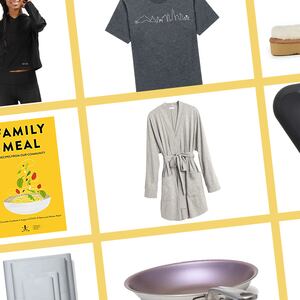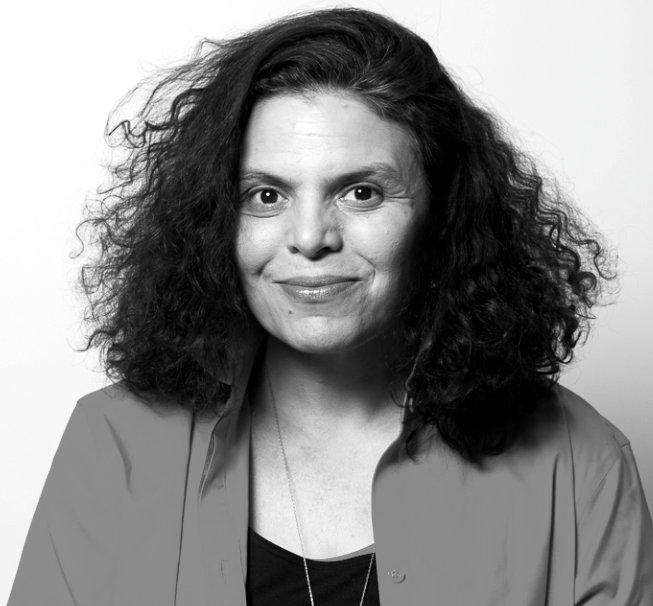Thank G-d my mother is already dead. I catch myself saying that a lot these days.
Nine years ago, her cancer diagnosis and inevitable death were the most harrowing experiences I could have ever imagined. And for as long as I could, I didn’t. Until days before she died, I found the words to ask her: “Mom, how do you live without your mother?”
I didn’t want to talk about the end of her life. I didn’t want to spend time going through generations of family photos, Judaica and memorabilia, despite her begging me to.
But once the only treatment left was no treatment at all, we did everything possible to ensure that our mother lived a really good death.
Now, in this time of COVID-19, I look back at that dark period with deep gratitude.
We made her home hospice into a multi-week going-away party: think quarantine meets open house. We laughed a lot—about how my waking up with her multiple times a night was boot camp for parenting an infant; about how unfair it was that she’d die before Downton Abbey’s 2014 season premiere; about guilting me for stress-eating in her home hospice. We livestreamed Yom Kippur. We held her hands, caressed her keppee (forehead) and listened closely to her very last breaths. I’d promised her, “We won’t let go till Dad [who she knew would be waiting with outstretched arms on the other side], says, ‘Gotcha.’”
Within hours we were planning the funeral, which due to contiguous Jewish holidays, was delayed five days. The funeral director offered a livestream option. Livestream her funeral? “Take it,” he said. “You never know who might not make it in person.”
Her body lay in cold storage until close friends and synagogue members performed the ritual tahara (purifying a dead body for burial). One of them promised: “I’ll look into her face, tenderly put potsherds on her eyelids, and tuck her into her shroud.”
Arm-in-arm, shoulder-to-shoulder, friends and family filled the Plaza Jewish Community Chapel so tightly you could hear people breathing. They exchanged hugs and kisses, bits of stories and Kleenex. I remember turning to take in the crowd when my oldest brother whispered: “Look! Mom’s funeral is packed!” There were heartfelt eulogies, a klezmer violin solo, and our cousin, who we call “the Lesbian Reconstructionist Rabbi to the Rescue,” raucously singing Mom’s favorite—“I’m Spending Chanukah in Santa Monica”—before chanting the ancient El Maleh Rachamim (Prayer for the Soul of the Departed).
We buried her in a crowded Jewish cemetery on the border of Long Island and Queens. My brothers and I made good on our long-ago pact to fully cover our parents’ coffins with soil ourselves, shovel by shovel. Afterwards our family and friends formed a human archway for us to walk through, physically embodying the community that would hold us up while we grieved, symbolically transitioning us to shiva. We left our mom next to our dad and their mechutanim (in-laws). She was anything but alone.
Sitting shiva (the seven-day Jewish ritual of intense mourning) followed, first at my brother’s house and then at my small Upper West Side apartment. We were surrounded by friends and loved ones. It was expected, needed, almost taken for granted. They witnessed our grief, held us in long extended hugs, prayed with us, passed around old pictures, shared things about our mom we didn’t even know, and brought way too much babka.
It’s painful to recount all of this right now as COVID-19 robs mourners of every intimate, in-person, up-close grieving ritual. This can’t become the new normal. It’s anything but normal.
Seven years later, my grief over losing my mother has evolved. How and why I wonder? I got to grieve in community; I became a parent to a newborn; I made films that explore love and grief. And I repeatedly tell my now 6-year-old daughter concrete stories about her Bubby and Grandpa—stories connected to objects they loved to use and that I have integrated into our home, our rituals, and our life together.
During the lockdown I find myself fantasizing: If Mom was alive, how would we spend our virtual time together?
At the end of her life there were two basic things she wanted: time with me and peace of mind. She wanted to talk about the end of her life and what she really hoped to pass on to us, literally and spiritually. She wanted to go through all the stuff that she couldn’t take with her, so we would know what was what. And she wanted to talk about what really mattered—to her, to us, to our family.
She had no problem discussing living wills and “do not resuscitate” orders. I did. But maybe, I would have gotten there sooner had I taken her lead and simply started by asking her about the stemware she always hated but used anyway because my father surprised her with it for a major anniversary. Or my Bubby’s very heavy, very old brass candlesticks. That story I can recount, because I grew up hearing it. “Bubby brought them over from Dvinsk (Latvia) in 1903. They were a part of her dowry, from her parents. She used them every Shabbos. One day they will be yours.”
Yes, if my mom was on the other side of a Zoom I’d use our time to do a stuff review.
“OK Ma, we’re recording. Find the picture of grandpa and the brothers he helped bring over from Bobruisk. What are their names, why didn’t we grow up knowing them, and where do you think all their children and grandchildren are now?
We’d move to the kitchen: “Let’s start with your Moulinex La Machine 2. Why did you switch from a stainless steel box grater to a food processor? Was this when thousands of years of hand-grating potato latkes (pancakes) came to a sharp halt? For me, yes. Maybe, if we were lucky, she’d be inspired to teach us how to make the perfect latke.
If my mother were alive I think she’d suggest we turn this period of virtual check-ins into a time for storytelling between generations, a chance to talk about what really matters, and an opportunity to find out what it is we really need to leave our children.
Judith Helfand’s feature documentary LOVE & STUFF will premiere during the Hot Docs festival, where it will stream from May 28 to June 24.


